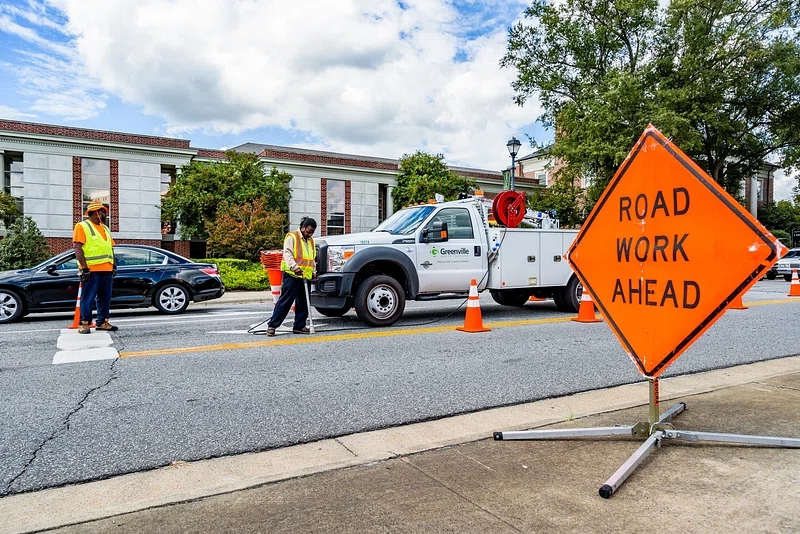Have a story idea
Have a story idea? Send it to us here.

Source : Rawpixel
October 16, 2024
Author : Patty Allen
Elected officials and the Central Ohio Transit Authority (COTA) have united to support a significant transit sales tax levy aimed at funding the $2 billion LinkUS Mobility Initiative.
This initiative, which will be on the November ballot, is designed to transform public transportation in Columbus, providing fast and reliable options for commuters, along with enhanced bike and pedestrian paths, and creating walkable communities that improve accessibility to jobs and services.
If approved, the levy will increase COTA’s sales tax in all its service areas from 0.5% to 1%, translating to an additional 50 cents on a $100 purchase. This tax hike is expected to generate around $6.2 billion in revenue by 2050, which will help fund a comprehensive upgrade to Columbus’s transit infrastructure.
The launch of this campaign was marked by a gathering of local leaders, including U.S. Rep. Joyce Beatty, Columbus Mayor Andrew Ginther, City Council President Shannon Hardin, and other prominent figures. Rep. Beatty emphasized the urgency of the initiative, stating, “We know the rapid growth that we’ve had here in central Ohio. But we don’t have that infrastructure to support it.” With Columbus reportedly the fastest-growing city in the U.S., the need for a robust transit system has never been more critical.
One of the key components of the LinkUS initiative is the development of multiple bus rapid transit (BRT) corridors. Mayor Ginther explained that BRT offers an experience similar to light rail in terms of speed and comfort but is a more practical and affordable option for Columbus, which does not currently have the density required to attract significant federal funding for light rail systems. He noted that, “It is far more affordable to do the bus rapid transit,” making it a viable solution to the city’s transportation woes.
Among the planned projects is a $314 million corridor along West Broad Street, recently approved for $41.9 million in funding. Additional corridors are set to be introduced along East Main Street and Olentangy River Road. Beyond transit improvements, the initiative also includes plans for 500 miles of bikeways and paths across central Ohio, promoting sustainable and accessible transportation options for all residents.
Despite these positive developments, local officials face a significant challenge in rallying public support for the levy with less than five months until the election. Mayor Ginther has called on the community to engage with the initiative, urging residents to educate themselves and their neighbors about the benefits of the LinkUS plan. “We’re asking everybody in this community to lean in, to get educated, to share information,” he said.
Current transit conditions in Columbus are less than ideal. Despite being the 14th largest city in the nation, Columbus lacks high-capacity transit options. Residents are currently served only by COTA buses, which come infrequently, making it difficult to navigate the city efficiently. An investigative report by the Columbus Dispatch highlights this disparity, stating, “You’d think with a nickname like ‘Cbus,’ the city would have state-of-the-art public transportation.” The proposed overhaul aims to address these issues by enhancing service frequency and directing residential and business growth along high-speed bus lines.
The LinkUS initiative has been in development for several years and is viewed as a proactive measure to combat rising housing costs while promoting development along designated corridors. Additionally, it seeks to address low bus ridership, which has dropped significantly since the pandemic. In 2023, COTA reported 11.12 million rides, down from 19.4 million in 2019.
With the Infrastructure Investment and Jobs Act, President Joe Biden’s $1.2 trillion bipartisan infrastructure bill passed in November 2021, Ohio received $77.7 million in infrastructure funds, paving the way for projects like LinkUS. Beatty pointed out that this initiative would not have been possible without the federal support, remarking, “We’re claiming a great victory because it passed.”
As the campaign for the sales tax levy gains momentum, local leaders are optimistic about the future of transit in Columbus. The outcome of the election will play a crucial role in shaping the city’s transportation landscape for years to come, making it imperative for residents to understand the potential benefits of the LinkUS Mobility Initiative.
Category : Federal Government Investment in Infrastructure Local Government
